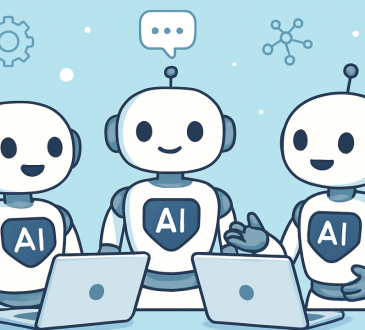
In the past decade, artificial intelligence (AI) has grown from a niche technology into a powerful engine of innovation across industries. From healthcare and finance to energy and transportation, AI is transforming how we interact with technology, make decisions, and solve complex problems.
However, as AI models grow more sophisticated, they demand computational power that often exceeds even the most advanced classical supercomputers. This is where quantum computing comes in—a revolutionary technology that promises to boost AI development with unmatched speed and efficiency.
Understanding Quantum Computing
Quantum computing operates on the principles of quantum mechanics, which allows it to process information in ways classical computers cannot.
- Classical computers use bits to represent data as 0 or 1.
- Quantum computers use qubits, which can exist in multiple states simultaneously (superposition) and can be interconnected (entanglement) to perform incredibly complex computations in parallel.
For AI, this means algorithms that once took weeks or months to run on classical systems could be completed in hours or even minutes on quantum hardware.
Quantum Computing and AI: A Game-Changer for Machine Learning
One of the biggest impacts of quantum computing is in machine learning, particularly when optimizing large-scale neural networks.
- Modern AI models often involve millions or even billions of parameters that need fine-tuning.
- Quantum algorithms, like the Quantum Approximate Optimization Algorithm (QAOA) and quantum annealing, can speed up this process by finding optimal solutions in high-dimensional spaces.
This not only reduces training time but also allows AI systems to explore more sophisticated models, previously limited by classical computing power.
Real-World Applications
Healthcare
The combination of quantum computing and AI is already making waves in healthcare:
- Predicting protein structures
- Modeling drug interactions
- Analyzing massive genetic datasets
Quantum-enhanced AI enables researchers to process data faster, accelerating drug discovery and personalized medicine. This shift has the potential to save lives while reducing healthcare costs.
Finance and Logistics
AI models in finance and logistics handle enormous amounts of data:
- Financial markets: Quantum computing can improve forecasting, risk management, and fraud detection by handling far more variables at once.
- Supply chains: AI-driven optimization benefits from quantum techniques to model complex networks, reduce costs, and improve global delivery efficiency.
Challenges on the Road Ahead
While promising, quantum AI faces several hurdles:
- Hardware limitations: Current devices, called Noisy Intermediate-Scale Quantum (NISQ) systems, are powerful but still limited in size and stability.
- Error correction: Researchers are developing methods to minimize qubit errors.
- Hybrid approaches: Combining classical and quantum computing allows AI to handle routine tasks classically while offloading intensive calculations to quantum systems.
These strategies are bridging the gap between theoretical potential and practical use.
Global Investment and Collaboration
Governments and tech giants recognize the strategic importance of quantum-enhanced AI:
- Countries like the United States, China, and the European Union are investing billions in quantum research.
- Private companies and AI startups are racing to build scalable quantum platforms.
This global effort is about more than technology—it could redefine economic competitiveness, national security, and scientific progress in the coming decades.
Building a Skilled Workforce
Developing quantum AI requires specialized skills:
- Quantum computing: Knowledge of quantum mechanics, algorithms, and hardware.
- AI and data science: Expertise in machine learning, neural networks, and large-scale data analysis.
Universities and training programs are creating interdisciplinary curricula to prepare professionals for this rapidly evolving field.
Ethics and Governance
As quantum computing amplifies AI capabilities, ethical considerations become crucial:
- Advanced AI could disrupt labor markets or increase surveillance.
- Policymakers and technologists are working on frameworks for responsible development, emphasizing transparency, fairness, and accountability.
Balancing innovation with societal well-being is key to maximizing benefits while minimizing risks.
Looking Ahead
The convergence of quantum computing and AI promises unprecedented innovation:
- Faster scientific discoveries
- Smarter healthcare solutions
- More efficient logistics
- Advanced financial modeling
Collaboration across nations, institutions, and industries will be essential. Organizations investing in quantum AI today are not just seeking a technological edge—they are shaping the future of global innovation and human progress.
Conclusion
Quantum computing is no longer just a futuristic idea—it is a catalyst accelerating AI development worldwide. Its power to solve complex computations at unprecedented speeds is transforming industries and expanding the frontiers of technology. As quantum and AI continue to intersect, we may witness a new era of innovation where imagination meets computational reality.




